Weronika B., Julia W.
Interview
Ecological heating systems play a big part in the life of the household members, as they reduce expenses and are better for the environment.
Since there are no major companies dealing with the issue of smart houses and their development in our city, we stepped forward to see how our voivodeship tries to implement smart solutions and improve its inhabitants life in this certain topic.
Smart house is an energy-efficient house. That’s why we wanted to know more about introducing smart solutions such as retrofitting, photovoltaics, solar panels, replacing carbon boilers and implementing renewable energy sources in the Silesian Voivodeship.
You can read more in our interview:
Interview with the Marshal’s Office of the Silesian Voivodeship executive
Assessment of the European Regional Development Fund projects
[introduction] […]
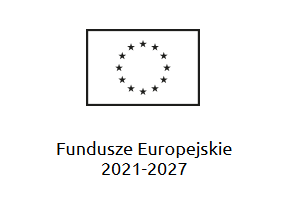
The first question: what changes in the field of thermal efficiency improvement (retrofitting) and implementing modern heat sources does the EU project offer?
- The EU project understood as EU funding; the European Union puts a big emphasis on reducing energy demand, it mainly focuses on renewable energy sources, so it is possible to obtain funding in a very wide range; both for the thermal efficiency improvement of buildings, i.e. reducing the demand for heat and electricity, as well as the implementation of renewable energy sources. And there are different kinds of buildings - residential buildings, public utility buildings, multi-dwelling buildings, businesses can be subsidized in this regard, too, so the scope is very wide. All activities that favour environmental protection and activities related to renewable energy sources and efficiency, as well as the improvement of efficient energy use are very welcome and a lot of funds are allocated for these purposes. Then we can talk about building insulation, replacing lighting with energy-saving systems, replacing lighting in squares or in public spaces, replacing carbon boilers with ecological ones or with renewable energy sources, construction of power plants or heating plants based on renewable energy, so we are talking about large-scale installations not only for the needs of individual residential buildings or public buildings, but also solar or wind power plants, combined heat and power systems… so there’s this entire wide scale of such projects. Together with the fact that so-called passive house building is supported, i.e. construction that does not need external energy at all, is in this respect self-sufficient, or produces its own energy from renewable sources enough to use the energy that it uses from conventional sources whether from a power plant or a heating plant – still, there is a balance; there is a very wide range of funding.
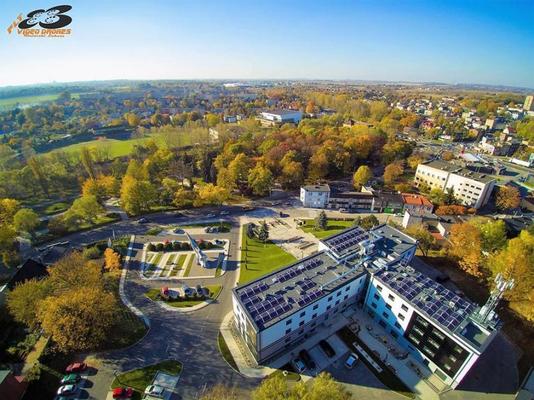
Retrofitting of the Czeladź Municipal Office, Silesian Voivodeship
Photovoltaics and solar panels appear as solutions that make life easier, but they are very expensive. Do you think that EU funding can solve the problem with their accessibility?
- Of course, it can be indicated by the interest in our funds and how the second EU budget deals with the financing for renewable energy. Really, a very rapid progress is now noticeable - both thanks to our funding, so EU funds, as well as thanks to government support, i.e. Mój Prąd (My Electricity Programme), or tax breaks related to thermal efficiency improvement. Looking at how many such small solar installations or micro-installations have been installed, we can really talk about a several dozen times increase in energy produced from renewable energy sources. Photovoltaics, i.e. generating electricity from solar energy, are mainly popular, but solar panels are also popular - a little less, because here they can only offer us hot water and the use of them is much narrower than energy from photovoltaics. Still, you can say that it is a popular renewable source or a popular installation and very often the beneficiaries benefit from it. Certainly the fact that we can give funds, first of all, creates a leverage effect, because more and more municipalities or inhabitants decides on renewable energy sources, but on the other hand, it is also visible that it affects the market in such a way that those installations have become much cheaper compared to what we could observe a few or a dozen years ago. There is a feedback and now an inhabitant or a municipality can more often afford such investments due to the fact that these installations have become cheaper over the years - due to the fact that there is a lot of interest in them. It is the same with heat pumps. Heat pumps, on the other hand, play an increasingly important role, much more vital, when it comes to heating a building. Due to the fact that there are some funds available on the market - whether it is our funding, or low interest loans in banks, the prices of heat pumps have become much cheaper in comparison with a few years ago and they are also becoming a popular source of heat.
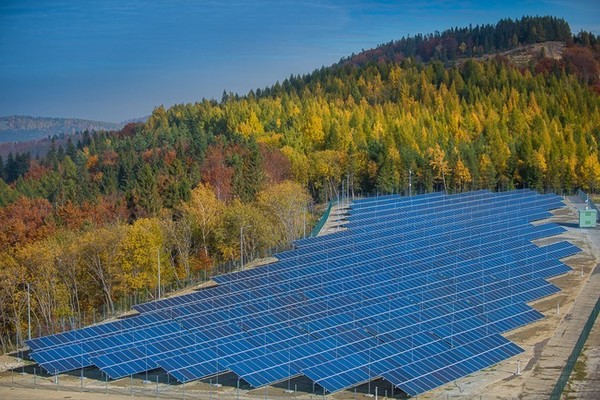
Can heat pumps be used in private houses?
- They are used more and more often due to the fact that their price is relatively going down and becoming more affordable, especially if there is, for example, the possibility of funding - as it is in our case under the Regionalny Program Operacyjny (Regional Operational Programme). If it is possible to obtain funding for heat pumps and photovoltaic panels, which partially cover the demand for electricity for this heat pump, because the heat pump is an installation that uses a natural source, i.e. air, heat from the air or cold, depending on what for it is used, but electricity must have some support. This combination - a heat pump plus photovoltaic panels is also very popular, because it allows the house to use heating only by relying on the heat pump.
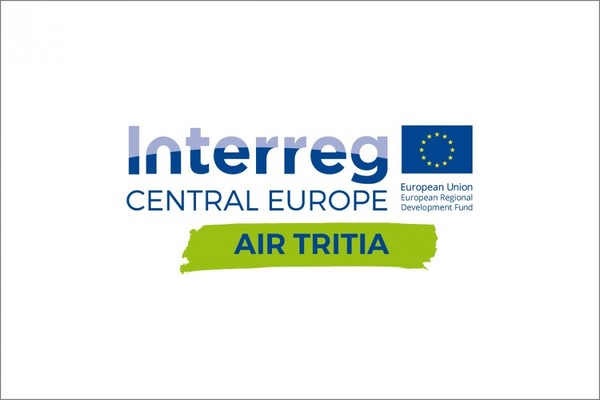
The INTERREG Community Initiative
What is your knowledge regarding recuperation and renewable energy sources?
- My knowledge in this field is a bit practical, because I have recuperation at home and it is indeed a useful, but very expensive installation. Here it is more difficult to see the benefits, because in the case of a heat pump or photovoltaic panels, we can immediately see the profit. We have to incur large investment expenditure to buy such an installation, but then we can have a lot of savings, while recuperation itself is rather used to replace the air inside the house, it replaces mechanical, or any other type of ventilation. It also cleans the air, because recuperation includes filters, and the air that enters the building is already filtered and purified in some way, which is important especially in winter. It shows how polluted the filters are, but it is not treated as a RES installation compared to heat pumps, photovoltaic or solar panels, because it does not generate energy. There is minimal heat recovery, but it is difficult to compare it to installations for the production of heat or for the production of energy from renewable sources. On the other hand, if someone decides to invest in recuperation, apart from the benefits associated with good ventilation of the building, its dehumidification (so the building is less exposed to moisture or even fungi), the advantage is that there is no need to incur additional expenses, related to building drainage, if we are talking about old buildings. Recuperation is not as much appreciated on the market as the heat pump or photovoltaic installations, where benefits are easy to notice - we have much lower electricity or heat bills.
In hindsight, has the funding in Katowice and neighboring cities increased due to the pandemic?
- It is difficult to say what influence the pandemic had on the interest in our funding. Certainly, the needs for it are large and the funding that we provide for the replacement of boilers, or for thermal efficiency improvement, or for renewable energy sources results from very large needs diagnosed in our cities, so the needs still exist and this has not changed due to the pandemic. However, the situation related to the epidemic certainly creates problems in the implementation of projects or, for example, guaranteeing own contribution to the project, because the budgets of municipalities are strained. The budgets of individuals are also strained, because we have an uncertain situation related to work or, in general, profitability, with keeping the business on the market, for example, so we are trying to make it easier for beneficiaries to apply for support in such a specific situation. A number of acts try to facilitate this issue by applying some simplifications or a milder approach to certain restrictions, but it certainly requires more commitment from managing authorities. We provide support and our beneficiaries are worried about whether they will succeed in their own contribution to the project, whether they will manage to realize the project and then successfully get it accounted for. On the other hand, it is difficult for the pandemic situation to translate into smaller or bigger interest in funding. The problems are visible, especially in Poland, in Silesia, there are many of them, and the pandemic really spreads confusion with the realisation of the project and generally deciding whether to implement a project or not – just for fear of a lack of own funds or the lack of organizational capacity to complete such a project.
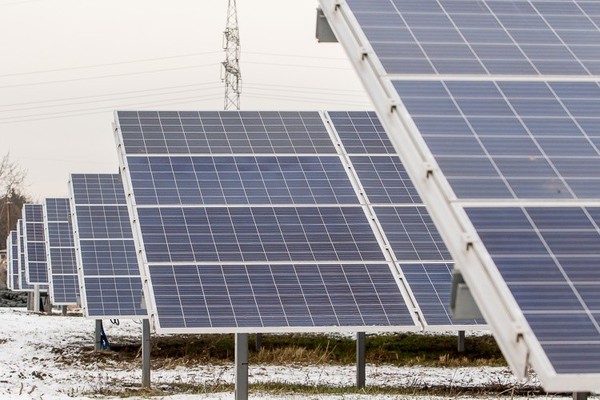
It is known that investments, colloquially speaking, can extend city-wide, and relate to its various fields, but when it comes to private houses, can we observe such investments in private spaces, or are they implemented only on a city scale?
- I will answer in a twin-track approach - when it comes to our support, i.e. from the funds of the Regional Operational Program, we do not directly support individuals, but a very common type of projects for our beneficiaries, i.e. municipalities, certain districts, local government units, is applying for the benefit of their inhabitants. These are the so-called umbrella projects or grant aids, where the municipality organizes projects among its inhabitants and then presents such a group of inhabitants to us in the application. This way, the residents of the municipality can also benefit from our funding. It is certainly very noticeable, which is why our support goes in two directions - projects are difficult to implement, because they require enormous commitment from the municipality and they require coordination of these installations. As a standard, a municipality has one or two buildings in a project or even several of them – but when it comes to an umbrella project or grant aid, there are several dozen or several hundred single micro-installations or small-scale heat sources, and we even have projects with several thousand such installations, so it is a huge undertaking. The project, with several thousand installations, was a project of the Inter-Municipal Union (Związek Międzygminny), so even such partnership projects happen. Certainly, such projects are becoming more and more popular, mainly due to the fact that awareness among inhabitants is increasing and inhabitants motivate municipalities to apply for such funds. It can also be observed that due to the fact that the prices of these installations of various types have decreased, the interest in this topic is also growing and people are trying to carry out such pro-ecological investments with their own funds, or to obtain various types of funding – for ex. from the Regional Operational Programme through municipalities, or they apply to government programs that offer support. We have Czyste Powietrze (Clean Air Programme), Stop Smog Programme, My Electricity Programme, we have tax breaks, and the awareness of the benefits coming from such investments has undoubtedly increased and this also translates into interest in our funding and generally such public funding that could support them in these investments, because however, these are often expensive investments. Certainly it is noticeable among the residents and it is also visible in our projects. You can see that this is a reflection of the change in the awareness of residents, because on the one hand, of course, financial savings are a significant benefit - these are investments that result in some savings in bills or household budget, but the ecological awareness becomes higher, too. Heating the house with non-ecological boilers or the building's high demand for energy can leave damage in macroeconomic terms, so you can certainly see a much greater interest in such pro-ecological projects than a few years ago.
Our smart house
What we have learned is that the range of the European Union funding is huge and the Silesian Voivodeship, looking at how we have to deal with poor air quality, invests a lot in making changes in field of renewable energy sources and retroffiting (house insulation, replacing carbon boilers, introducing photovoltaic and solar panels). Changes can be visible in many areas of the city.
The second EU budget puts a big emphasis on implementing such ideas - they are already there. We can see a huge interest in this topic and looking at how the prices of such installations have decreased, our ideas for the smart house heating are definitely being put to use. Especially photovoltaics systems play a vital role in changing house expenses and helping the environment. They are becoming a must.
Some of the ideas presented on our blog can be linked with smart heating, for example clap lights - they could use energy-saving light bulbs or floor heating - using heat from renewable energy sources.
Apart from our ideas for smart house heating, on our site we took up the topic of touch-id boxes, face ID, water tap sensors, smart wardrobes - things that use electronic engineering. We also tried to picture parts of our house but digitally. We didn't forget about facilities made for disabled people and we would like to picture their future with robots that could help them in everyday life.
Alas, there is not many brands in Jaworzno dealing with the topic of smart houses in specific. We tried to contact three of them, but the communication was lost. We hope for our city to develop in this field. The future is promising.
After the interview - a letter grid
You can also click the link: https://wordwall.net/play/16670/763/468